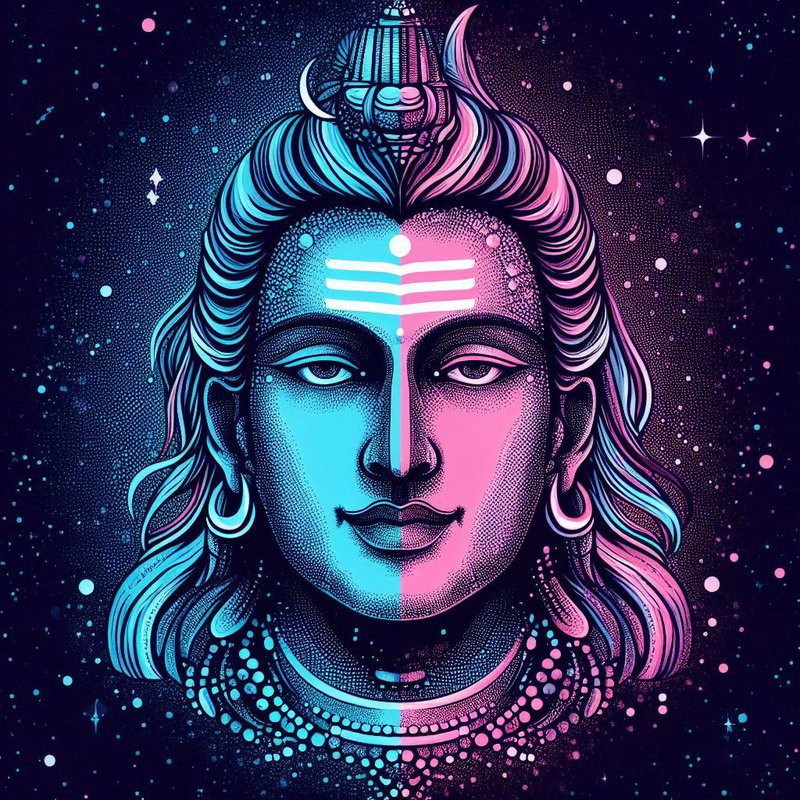Mahashivratri, also known as the Great Night of Lord Shiva, is a significant Hindu festival celebrated with great devotion and enthusiasm It is observed on the 13th night and 14th day of the lunar month of Phalguna (February or March) according to the Hindu calendar. In 2024, Mahashivratri falls on March 8th.
The Significance of Mahashivratri
Mahashivratri holds immense importance in Hindu mythology and is dedicated to Lord Shiva, one of the principal deities in the Hindu pan. Lord Shiva is considered the destroyer and transformer among the divine trinity, which includes Brahma (the creator) and Vishnu (the preserver).
Listen to the story- Festival of Shivratri on Baalgatha Podcast. Click here
On occasion of Mahashivratri (the grand night of Lord Shiva) we bring to you two short stories related to this festival. The first story is about a tribal who accidentally showered 1,000 leaves from a bilva tree on to the Shivlinga. In the second story, we narrate how Shiva settled a dispute between Brahma and Vishnu.
You can listen to this story by clicking below
Image Source: Storyweaver. Music: Bensound. Sound effects: Soundbible. How did you find this story? You can give your feedback by leaving a comment below. You can also leave a review on Apple podcasts (formerly iTunes). We would appreciate it!
New! listen to Chanting of Lord Shiva’s Mantras on Chants of India by Sriram
About Baalgatha
Baalgatha means childrens’ stories. Each week, we will bring you two stories from India and around the world, alternating in English and Hindi. We source our content from Panchatantra, Jataka and other sources, we also narrate content created by contemporary authors. BAALGATHA STORIES ARE AVAILABLE ON Apple Podcasts (Formerly iTunes), JioSaavn, and Spotify.
According to ancient scriptures, Mahashivratri marks the night when Shiva performed his cosmic dance called “Tandava” that signifies creation, preservation, and destruction. Devotees believe that observing fasts and offering prayers on this auspicious day can help them blessings from Lord Shiva and seek his divine intervention in their lives.
Listen to Maha Mrutyunjay Mantra on Chants of India Podcast
Maha Shivaratri – The Night of Lord Shiva
One of the most revered Hindu festivals, Mahashivaratri is celebrated in honor of Lord Shiva. It falls on the 13th night and 14th day of the lunar month Phalguna. Devotees observe fasts, visit temples, and offer to seek blessings from Lord Shiva. The festival holds immense spiritual significance as it symbolizes the overcoming of darkness and ignorance. People believe that by worshiping Lord Shiva on this auspicious day, they attain salvation and liberation from worldly desires.
Listen to Chants of Lord Shiv to celebrate this festival on Chants of India by Sriram podcast.

How Mahashivratri is Celebrated
The celebration of Mahashivratri varies across different regions of India but generally fasting, night-long vigils, chanting of sacred mantras, and offering special prayers to Lord Shiva. Devotees visit temples dedicated to Lord Shiva and perform rituals such as bathing the Shivling (symbolic representation of Lord Shiva) with milk, honey, water, and other sacred substances.
Many people stay awake throughout the night in vigilance known as “Jagran,” engaging in devotional and recitation of hymns dedicated to Lord Shiva. It is believed that staying awake all night pleases Lord Shiva and ensures blessings for devotees.
Another significant aspect of Mahashivratri celebrations the consumption of Bhang, a traditional drink made from cannabis leaves. It is believed to be Lord Shiva’s favorite drink and is consumed in moderation during the festival.
Listen to more stotras and prayers on Chants of India by Sriram.
Mahashivratri Celebrations across India
Mahashivratri is celebrated with great fervor throughout India, but some places are renowned for their grand festivities. One such place is Varanasi, also known as Kashi or the City of Shiva. Devotees flock to the famous Kashi Vishwanath Temple and perform special rituals to seek blessings from Lord Shiva.
In Tamil Nadu, the temple town of Chidambaram witnesses elaborateions and cultural performances on Mahashivratri. The Nataraja Temple in Chidambaram is dedicated to Lord Shiva as the cosmic dancer and attracts devotees from far and wide.
In Himach Pradesh, the hill town of Mandi hosts a week-long international fair called “Mandi Shivaratri Fair” during Mahashivratri. The fair showcases cultural performances, folk dances, music concerts, a colorful procession carrying idols of Lord Shiva.
Har Har Mahadev
Mahashivratri holds immense significance in Hindu culture as it commemorates Lord Shiva’s divine presence and his role in creation and. This auspicious day provides an opportunity for devotees to express their devotion towards Lord Shiva through fasting, prayers, and various rituals. By celebrating Mahashivratri, people not only seek but also embrace the teachings of Lord Shiva that emphasize self-discipline, inner strength, and spiritual growth. So let us come together on March 8th, 2024, to celebrate Mahashivratri with reverence and devotion towards Lord Shiv.
